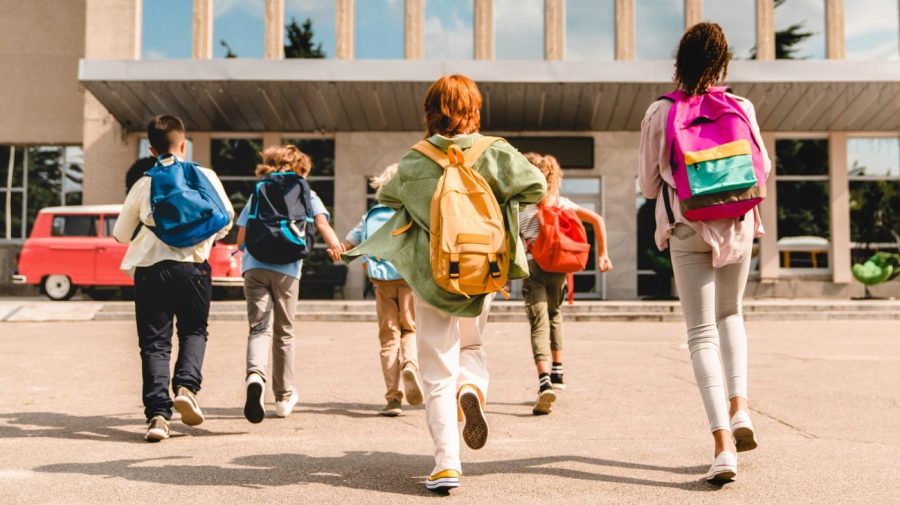SIOUX FALLS, S.D. (KELO) — Sioux Falls Police Chief Jon Thum suggested on Monday that the public direct their curiosity and interest into the Dec. 5 shooting at the Empire Mall toward filling the need for mentors in the community.
The incident at the Empire Mall resulted in the arrest of an 18-year-old man and a search for a second suspect continues.
The head of the largest mentoring program in Sioux Falls said Tuesday there is a need.
Lutheran Social Services of South Dakota operates youth mentoring programs in the city, Aberdeen and Flandreau with about 1,100 mentors in programs for youth in elementary through high school. LSS chief executive officer and president Rebecca Kiesow-Knudsen said the 1,100 mentors was reached before the COVID-19 pandemic. Mentors of retirement age and others left mentoring during the pandemic, she said.
“We’ve spent the past two years building it up to around 1,000,” Kiesow-Knudsen said.
A more recent review revealed a significant need in what are identified as CORE school areas, she said.
“In 2019, we had 453 mentors and now we are down to 268,” Kiesow-Knudsen said. “That’s a 41% decline in the core neighborhoods.”
Thum cited the need in core areas on Monday.
“While we talk about what we can do as a community, our core schools in particular are seeing a decrease in mentorship involvement,” Thum said during the police briefing on Monday. He did not cite data.
Kiesow-Knudsen said the core neighborhoods are typically the schools and neighborhoods in the central or downtown areas of Sioux Falls.
The need in those areas is in part because retirees left programs during COVID and some downtown workforce members who were mentors did not return to downtown offices and instead work from home, Kiesow-Knudsen said.
“I can tell you if we plugged that 41% gap, we would still have more kids that need support…,” Kiesow-Knudsen said of youth as a whole.
LSS has operated mentoring programs for more than 25 years. In 2019, it took over the Big Brothers and Big Sisters program that ended its service in the city. The youth mentoring programs include in-school mentoring for one hour a week at elementary and middle schools, four hours a month in a high school with a student, and outside of school community mentoring for four hours a month for youth 7 to 14. The outside mentoring program can continue past 14.
Thum “is a phenomenal advocate for mentoring,” Kiesow-Knudsen said. And it’s not surprising he advocated for mentoring in relation to the mall incident, she said.
Although Thum highlighted mentoring on Monday he also said, “Can I say that maybe mentoring would have interrupted this? No, I can’t.”
Still, the public can use all its interest in the media as motivate to do some to help youth, Thum said.
Kiesow-Knudsen said there is plenty of evidence to show that mentoring has a positive impact on a youth’s academic performance and a youth’s community engagement.
Kiesow-Knudsen supplied KELOLAND with a page-long list of research that displays the benefits of mentoring.
The youth.gov federal government website highlights increased school graduation rates, improved behavior and enhanced self-esteem and confidence as some of the positive effects of mentoring.
A January 2024 blog by the Annie E. Casey Foundation also highlights the positive impact of mentoring.
Research shared by the National Institute of Health also outlines the benefits of youth mentoring.
Research has also indicated that mentoring relationships that end prematurely or don’t involve follow-through can be potentially harmful.
Thune said those involved in the mall shooting incidents were not strangers to law enforcement during his comments about the need for mentors.
While Thum’s comments were prompted by reaction to the Dec. 5 Empire Mall shooting incident, Kiesow-Knudsen said the broader point of Thum’s comments are that a community needs to get involved to ensure that all youth are connected in the community. Youth that are valued, that graduate from school and become engaged and productive residents of their community is good for all, she said.
For those who believe they won’t be able to relate to youth, Kiesow-Knudsen said playing the card game of UNO has been a common way for mentors and mentees to connect.
LSS also has a “tremendous staff that can help provide support,” Kiesow-Knudsen said.


